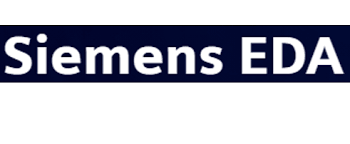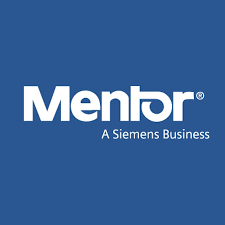Siemens EDA (Siemens Digital Industries Software)
Type: Division of Public Company
Parent: Siemens Digital Industries Software (under Siemens AG)
Founded: Originated in Mentor Graphics (1981); acquired by Siemens in 2017, rebranded to Siemens EDA in 2021 Engineering.com+9Wikipedia+9Siemens Software Newsroom+9
Headquarters: Wilsonville, Oregon / Santa Clara, California, USA
Industry: Electronic Design Automation (EDA) for ICs, advanced packaging, and PCB systems design
Global Market Share (2024): ~13% in EDA (after Symbiosis of Mentor and internal tools)
🧠 Overview
Siemens EDA delivers a comprehensive portfolio spanning IC design, verification, manufacturing signoff, PCB and packaging, and system-level design. Emerging from Mentor Graphics’ robust EDA foundation, Siemens EDA is tightly integrated with Siemens’ broader Xcelerator platform, enabling cross-domain workflows across ME, PLM, and simulation environments. Siemens Press+4Siemens+4Siemens Digital Industries Software+4
🛠 Product Portfolio
IC Design and Verification
-
Analog FastSPICE – High-speed circuit simulation for analog, RF, mixed-signal, and custom digital circuits
-
Aprisa – Digital IC implementation targeting advanced nodes with detail-route-centric physical design
-
Calibre Design Solutions – Industry-leading IC signoff and DFM verification suite with reliability tools
-
Catapult – High-Level Synthesis (C++/SystemC to RTL) with built-in low-power and formal verification
-
Oasys‑RTL, PowerPro, mPower – Tools for RTL logic synthesis, power estimation, and integrity analysis
-
Questa One, Questa ADMS – Functional and mixed-signal verification with formal, coverage, and debug tooling
Custom IC, Silicon, Packaging & Scan
-
Tanner / S‑Edit & L‑Edit – Custom design toolchain for analog, MEMS, and “More‑than‑Moore” applications
-
Tessent – Silicon lifecycle management platform, including test, yield, and security analytics
-
Solido / Symphony – ML-powered variation-aware design, IP validation, and mixed-signal simulation
-
Veloce CS & Innexis – Hardware-assisted verification platforms (emulation, prototyping, FPGA-based) for system-level validation
PCB & System Design
-
Xpedition Enterprise, PADS Professional – Purpose-built PCB schematic-to-manufacturing flows with supply-chain integration, DFM checks
-
HyperLynx – Signal & power integrity analysis suite for high-speed digital routing and layout validation
Cloud & AI Tools
-
Calibre nmPlatform – Cloud-enabled physical verification and signoff acceleration for scalable EDA workloads
-
EDA AI System – Launched at DAC 2025, integrating generative and agentic AI across Siemens tools with NVIDIA NIM/Nematron support (Aprisa AI, Calibre Vision AI, Solido AI) Siemens Digital Industries Software+3Siemens Digital Industries Software+3Siemens+3Reuters+12Siemens Software Newsroom+12Siemens+12Siemens+2Siemens Digital Industries Software+2Siemens Digital Industries Software+2Siemens Digital Industries Software+2Siemens+2Siemens Digital Industries Software+2Siemens Digital Industries Software+3YouTube+3YouTube+3Siemens Digital Industries Software+4YouTube+4Siemens+4Siemens Digital Industries Software+1Siemens Digital Industries Software+1
🔄 Strategic Integration & Acquisitions
-
2017: Siemens acquires Mentor Graphics (~$4.5B), consolidating EDA under its Digital Industries Software umbrella; fully rebranded to Siemens EDA by 2021 Wikipedia+5Wikipedia+5Siemens+5
-
2023: Acquisition of Insight EDA to integrate circuit reliability analysis with Calibre PERC™, enhancing failure prediction tooling for first-pass silicon success Siemens Software Newsroom+1Siemens Press+1
-
2024–2025: Expanded AI capabilities, cloud-native platforms, and deeper integration with Intel Foundry tools (e.g., Solido cert with Intel 16/18A for EMIB/3D‑IC) Siemens Digital Industries Software+8Siemens Software Newsroom+8Siemens Software Newsroom+8
-
Siemens is also acquiring Altair Engineering (expected close H2 2025), enhancing simulation-based and industrial software portfolio under Xcelerator Siemens Press+2Reuters+2Reuters+2
🌍 Market Position & Use Cases
Siemens EDA holds ~13% of global EDA market share (2024), behind Synopsys (~31%) and Cadence (~30%)—with China from lifted export restrictions now a key region for future growthMarketWatch. Its tools support:
-
Advanced analog/mixed-signal and RF ICs
-
Multi-die / 3D‑IC packaging flows
-
High-speed digital ASICs and PCB channel validation
-
Full-chip variability-aware design and reliability signoff
-
AI-driven productivity boosts across hot paths like APR, layout debugging, and rule-based RCA
📋 Summary Table
| Category | Details |
|---|---|
| Origin | Mentor Graphics (founded 1981); Siemens acquisition 2017 |
| Core Products | Aprisa, Calibre, Questa, Solido, Xpedition, Tessent, Veloce |
| Key Technologies | AI-enhanced flows; cloud-native EDA; reliability signoff; multi-domain integration |
| Strategic Acquisitions | Insight EDA; upcoming Altair (H2 2025) |
| Market Share (2024) | ~13% of global EDA market |
| AI/Cloud Launch | DAC 2025 AI system, Calibre Vision AI, Aprisa AI, Solido AI |
| Global Context | Partnered with Intel Foundry; integrated in Siemens Xcelerator; serving IC & PCB ecosystem |
🚀 Strategic Vision
Siemens EDA is evolving toward an AI-powered, secure, and cloud-scaled toolchain supporting chip-to-system design under Siemens’ Xcelerator ecosystem. Its roadmap emphasizes:
-
End-to-end design workflows from SoC to PCB
-
AI-driven design guidance, debug, and optimization
-
Cloud collaboration and secure data governance
-
Deep integration with manufacturing, reliability, and simulation offerings via acquisitions like Altair








Comments
There are no comments yet.
You must register or log in to view/post comments.